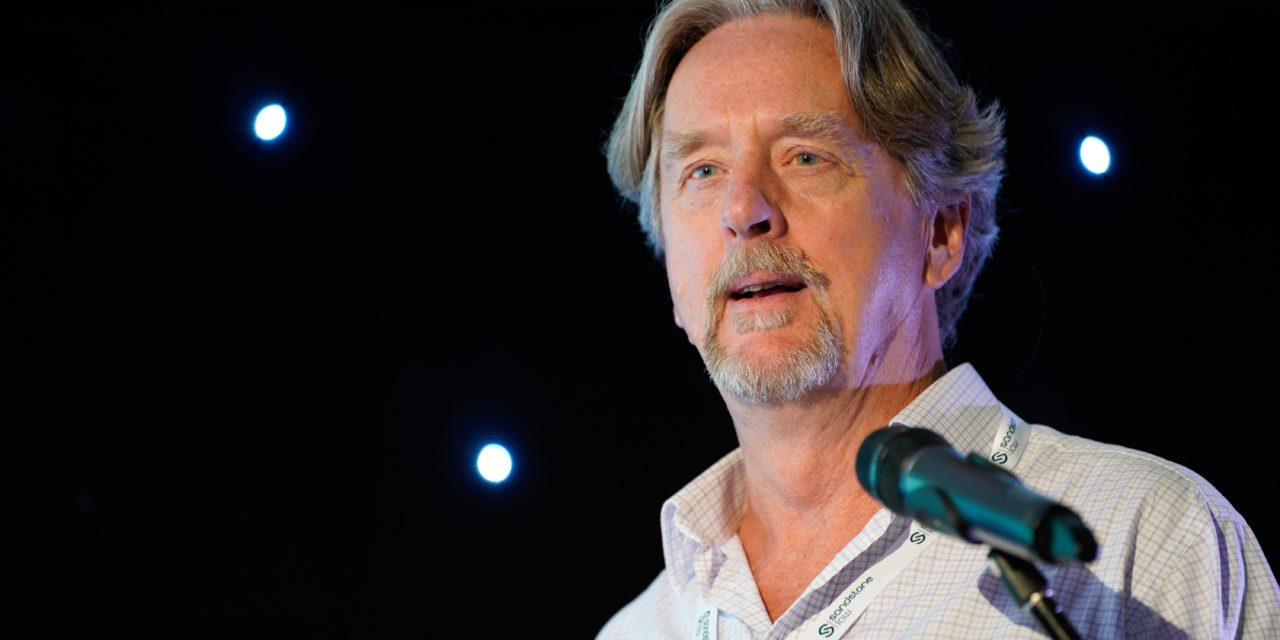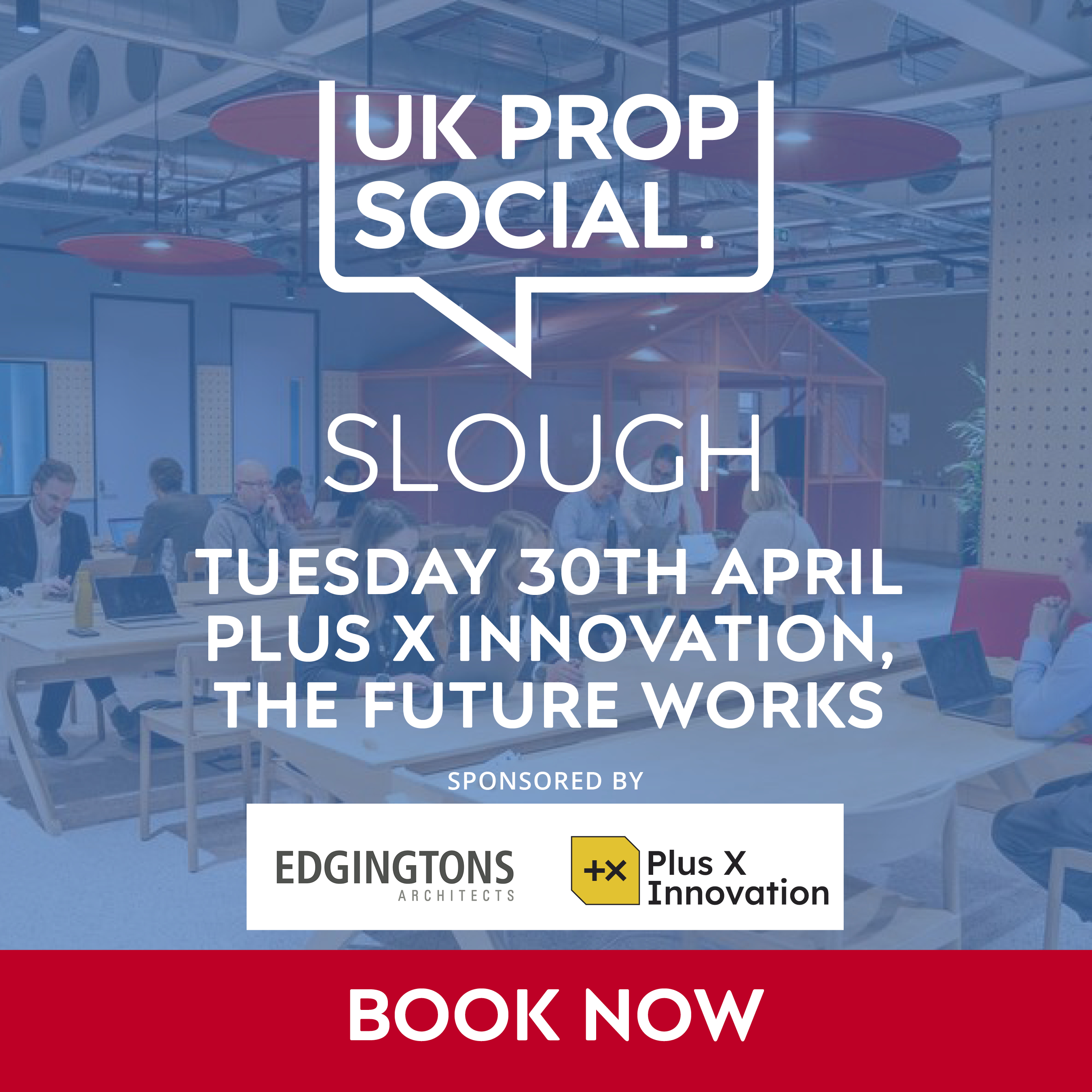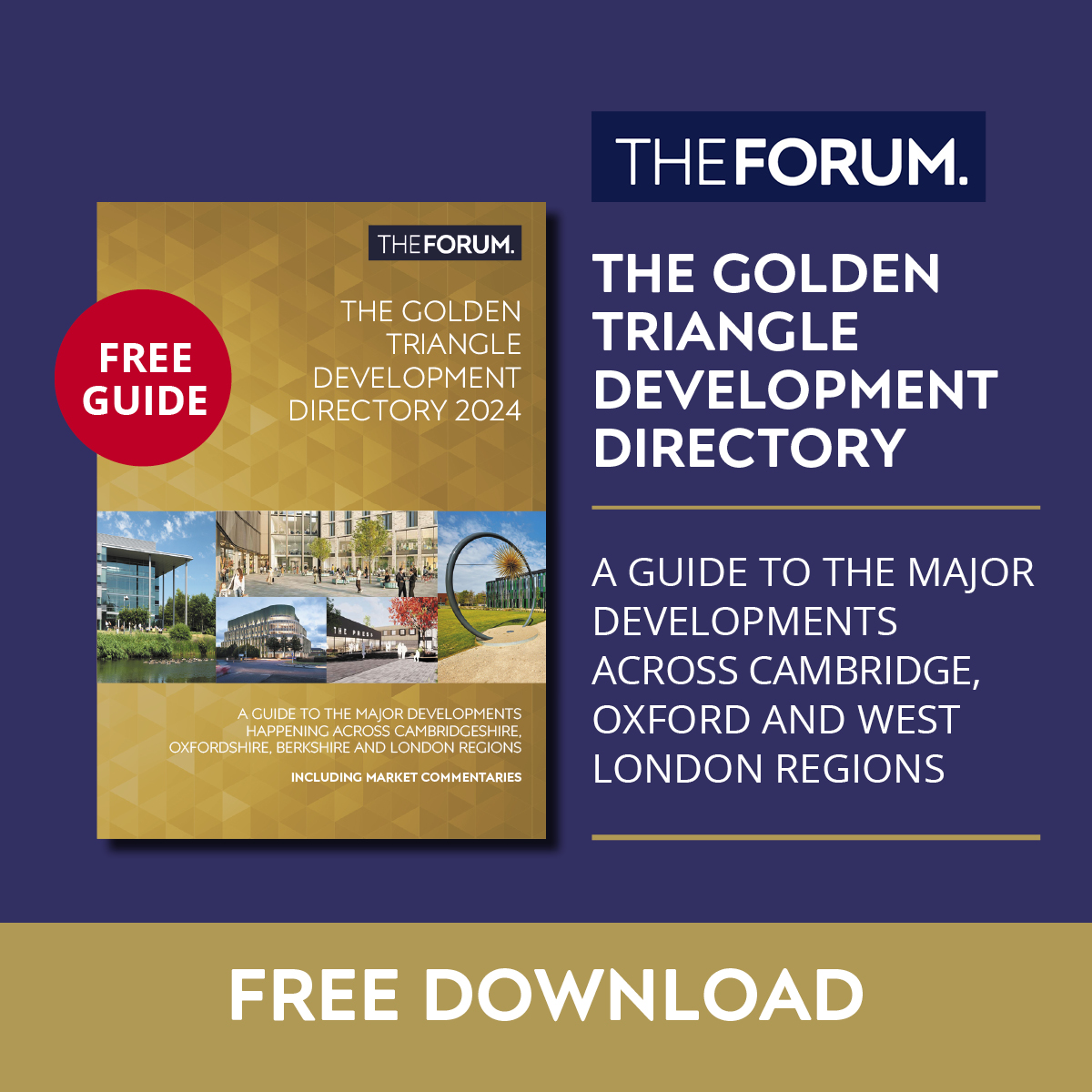UK Property Forums consultant Hugh Blaza, a key member of the team organising and presenting UKPropFest, summarises our first major event for two years.
There was a real excitement in the air as we prepared our venue (the vast Hangar 113 at Bicester Motion) for our first ‘live’ event since we were locked down and confined to the two dimensions of our computer screens.
The expo stands were installed and being dressed by the exhibitors, stage and chairs readied for our panel sessions and the cars, which really did set the scene for the event, arrived from the various businesses which occupy the hugely successful and increasingly well-known Bicester Heritage historic car centre.
And then the nerves – would we be able to marry up the slides our panellists were sending in with their presentations? (We needn’t have worried – the techies in charge of the AV set up are, well, techies and know a bit more about their kit than we do!). Would we succeed in enticing the delegates away from the expo and the chats they’d be engaged in to listen to our speakers?
We needn’t have worried; each of our four talks* had a healthy audience – and no wonder. We were lucky, as always, to have had speakers of the highest calibre addressing the really important and relevant issues of the day.
UKPF’s approach in setting the themes for our festivals has always been to avoid property industry specifics in favour of examining the context in which the sector operates. Understand the zeitgeist and you’ll be ahead of the game when it comes to identifying the market for your real estate product.
With ESG (environmental, social and governance)* and the impending COP26 summit ratcheting up the sustainability and net zero carbon agenda, it was entirely fitting that Talk One, chaired by OxPropFest Leader of the Year Richard Todd of Bidwells (although he didn’t know it at the time) should focus on how landowners, academics and investors are responding to the global challenge of achieving the holy grail of net zero carbon.
Whilst acknowledging the scale of the challenge, there is no doubt that the intent is there. Indeed, as Harriet Waters, head of sustainability at the University of Oxford, pointed out, following pressure from the university’s academics, the goal is to beat the Government’s 2050 target by reaching the finish line by 2035.
Was there a sense that the private sector is frustrated that the Government is not providing the legislative framework for, not to mention the drive towards the goals the landowners and developers wish to achieve? One got the feeling there was.
Turning to the changing face of Oxford, Talk Two, chaired by Advanced Oxford managing director Sarah Haywood, explored the creation of the innovation ecosystem which is driving the demand for new development in and around the city.
From ensuring the extensive redevelopment of the west end of Oxford is coherent to connecting the projects on Oxford’s periphery, such as Oxford North and Begbroke, were described as crucial to ensuring Oxford can attract new companies and people.
The innovation won’t stop, and unless we get the message right and deliver an attractive and affordable product, it won’t stay here and nor will the people who are engaged with this work. And the people we want to be here won’t come.
We heard echoes too from comments made in Talk One about the need to accommodate the people who will develop and implement the innovations; particularly challenging in one of the most expensive regions of the UK.
Kicking off the afternoon sessions, the subject for Talk Three (The Chemical Brothers!) described how life sciences, aviation, space, future energy, tech, and mobility continue to expand and multiply.
Clusters of organisations are being formed as the innovations grow and, as a consequence, their success and speed of growth are growing exponentially. Some of the world’s largest organisations are, as a result, within walking distance of each other.
Chaired by Charlie Rowton-Lee, head of commercial agency at Savills, it’s clear that Oxfordshire not only has the talented individuals who are driving the innovations, but also the real estate infrastructure to accommodate it.
Representatives on the panel from Harwell, Milton Park and Culham all confirmed that they can and are responding to the need for buildings to house the clusters. But more investment is needed from Government to assist in the delivery and commercialisation of what are truly world – beating innovations. Which in themselves will assist in delivering on the net zero targets.
Our panel was also able to demonstrate that the activity in the county is already stretching out to other parts of the UK – and not just across the Arc to Cambridge. And whilst the county is attracting businesses which could be going anywhere in the world to develop their innovations it is very much NOT the case that the rest of the country is being left behind.
Talk Four, chaired by Rob Allaway, managing director of engagement consultants DevComms, homed in on how the property community would ‘colour in the green Arc’ – but not by ‘greenwashing’ it.
Bev Hindle, chair of the Arc Leadership Group, took the audience through the clear manifesto articulated in the Arc Environmental Principles document.
There is a genuine belief that we can (to coin a cliché) build back better and Jayne Manley, chief executive of The Earth Trust, later in the day to become the winner of the OxPropAwards sustainable innovation award, demonstrated just how it could be done.
Reversing the damage to the environmental ecosystem and building nature into new developments are at the heart of Jayne’s message to the property community.
From the pioneering to the more traditional, Andrew Taylor of residential developer Countryside, explained how new sustainable ideas and increasing levels of community engagement were being integrated in the company’s projects.
And that project managers Ridge now have, in panel member Nick Hayes, a partner responsible for ESG is emblematic of how ‘green’ issues are fundamental to the future of development.
Drawing conclusions from such a full and comprehensive day was not easy but in our final wrap-up session, the panel chairs agreed that the desire for collaboration took precedence over competition and that communication of the ambitions and how the community was embracing the ecological challenges and ESG were crucial.
As was engaging with local authorities and existing and future communities.
Complex? Yes!
Achievable? Absolutely!
Better communication? Essential!
We’re looking forward to UKPropFest 2022 already but will be promoting other events over the next 12 months, designed to continue the discussions and learn about how progress is being made.
* The topics covered by our talks and the speakers and panellists, to whom we again extend our thanks and congratulations on providing so much fascinating and helpful material were:
Talk 1: On the Road to Net Zero
As COP26 in Glasgow approaches, the eyes of the world are on the UK. How are landowners, academics and investors responding to the global challenge of reaching net zero?
With so many competing financial pressures, how can we deliver Net Zero while still achieving our short-term goals and maintaining a global competitive advantage over countries less ambitious in their targets.
CHAIR
Richard Todd, regional office partner, Bidwells
PANEL
Harriet Waters, head of environmental sustainability, University of Oxford
Nigel Tipple, chief executive officer, OxLEP
Phil Parker, bursar at Brasenose College, Oxford
Roland Bull, head of rural investment, Bidwells
Talk 2: Creating the Oxford Innovation Eco-System
The city of Oxford is experiencing a once in a generation development boom. Where are the developments planned and how do they satisfy the need for commercial spaces and affordable housing? And will the creation of innovation quarters be an opportunity for the City of Oxford to jump ahead in the race to attract the next generation of start up and unicorn companies?
CHAIR
Sarah Haywood, managing director, Advanced Oxford
PANEL
Tom Bridgman, executive director – development, Oxford City Council
Anna Strongman, chief executive, University of Oxford Development
Steve Burgess, chief executive, Oxford Trust
William Donger, director, Thomas White Oxford (Oxford North)
Talk 3: Chemical brothers: How science became a part of the property family.
The clusters of life science, aviation, space, future energy, tech, and mobility continue to expand and multiply. How can the property sector help to facilitate the growth of these eco-systems and how can real estate match supply with demand in these fast-growing sectors?
CHAIR
Charlie Rowton-Lee, head of commercial agency (Oxford), Savills
SPEAKERS
Steve Chatfield, special advisor – life sciences, Savills
Dr Barbara Ghinelli, director – clusters and Harwell business development, UKRI-STFC
PANEL
Alistair Lomax, director, Arc Universities Group
Philip Campbell, commercial director, Milton Park
Caroline Livingstone, head of campus development – UKAEA, Culham Science Centre
Talk 4: Colouring in the Green Arc
The creation of new homes, settlements and garden towns are an integral part of The Arc narrative. But can a ‘green arc’ be delivered AND what are the driving ESG principles behind a successful and sustainable masterplan for The Arc?
CHAIR
Rob Allaway, managing director, DevComms
PANEL
Andrew Taylor, group planning director, Countryside
Nick Hayes, partner, head of sustainability, Ridge
Bev Hindle, executive director, Oxford – Cambridge Arc Leadership Group
Dr Jayne Manley, chief executive, The Earth Trust
Session 1: ‘We must keep communities on board’
Session 2: ‘Oxford needs to have a cohesive voice’
Session 3: Oxfordshire’s clusters explored
Session 4: Green Arc communications: ‘We have a serious problem’
© Thames Tap (powered by ukpropertyforums.com).
Sign up to receive your free weekly Thames Tap newsletter here.
















